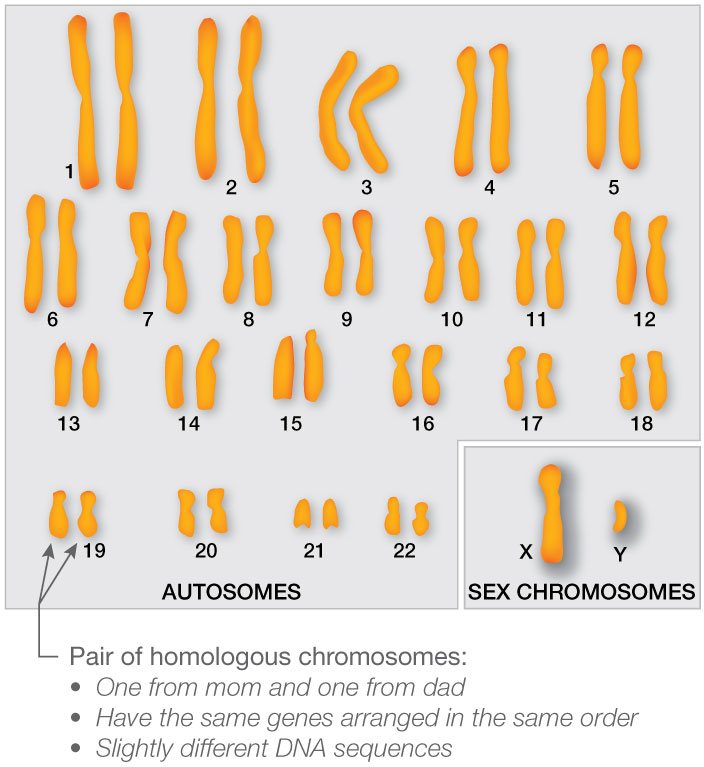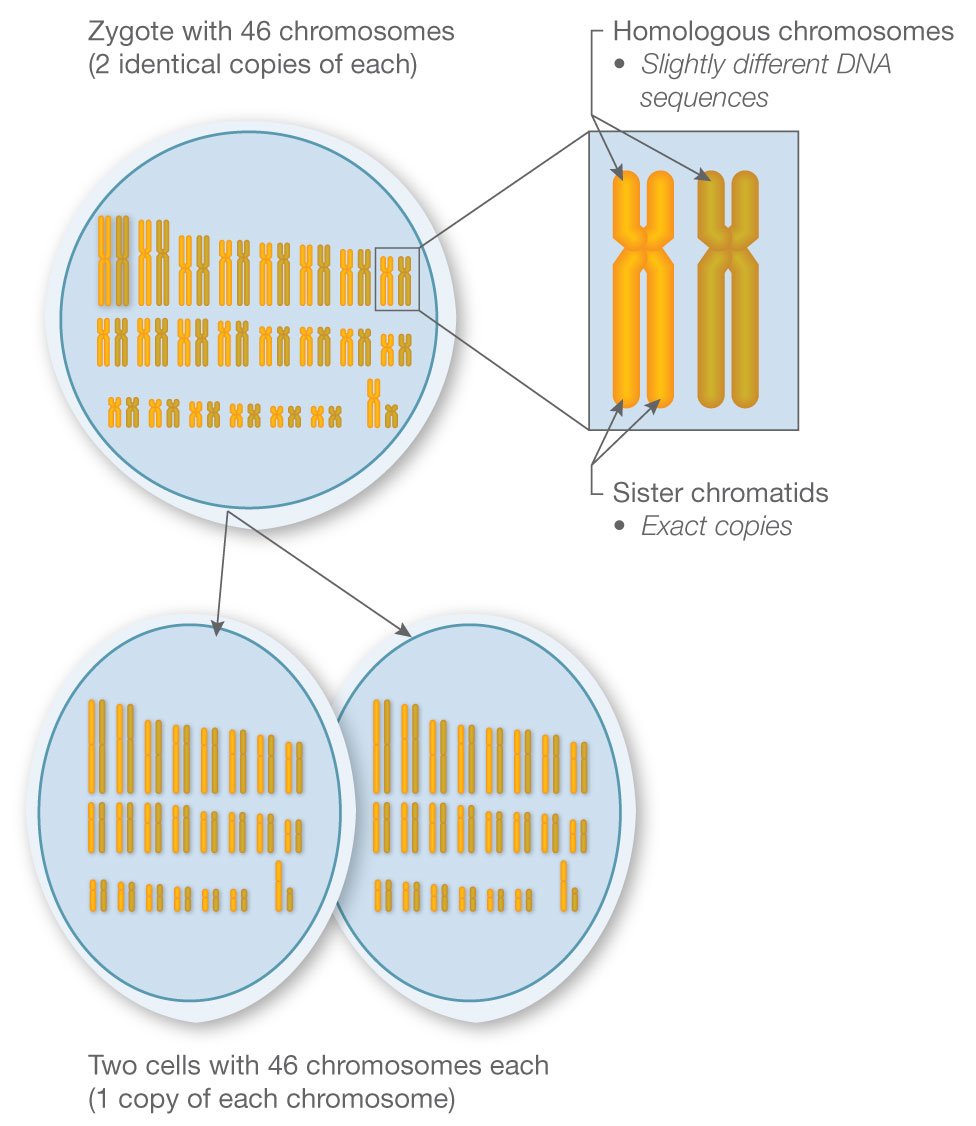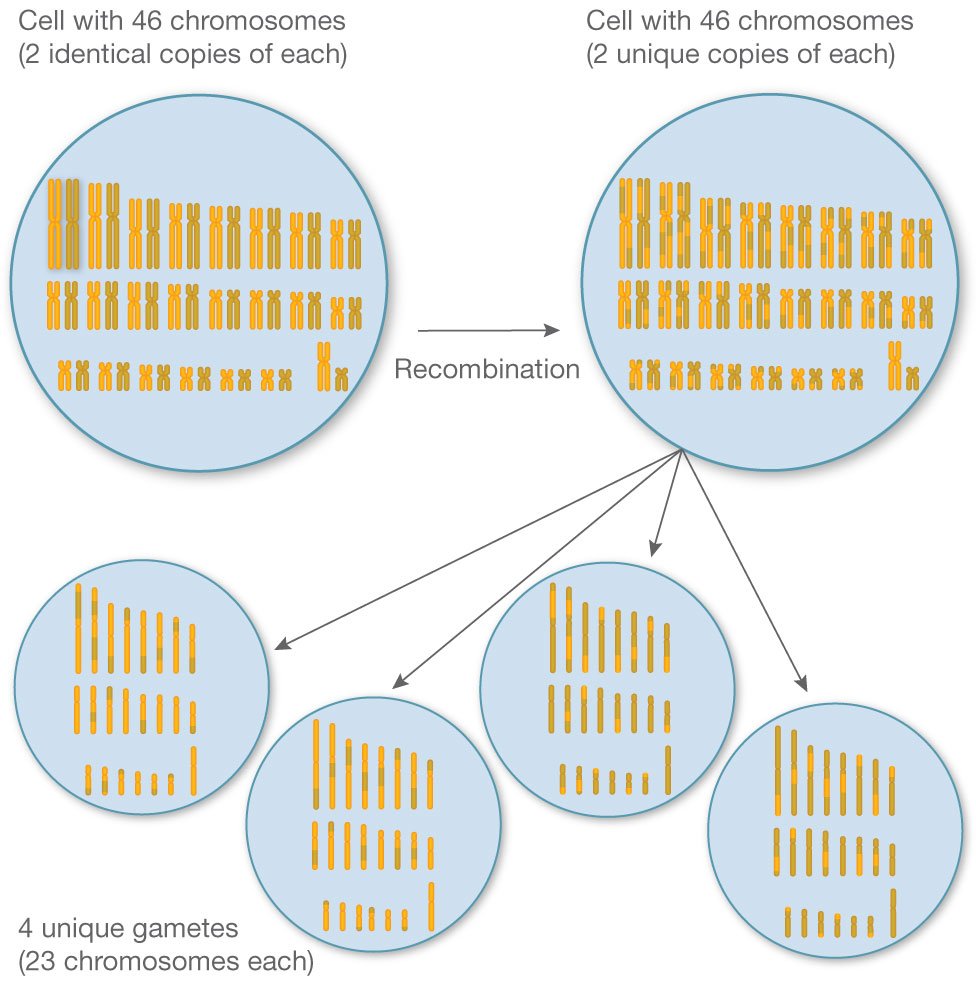A regular human cell has 46 chromosomes: 44 autosomes, which come in pairs, and 2 sex chromosomes, which specify whether someone is male (usually XY) or female (usually XX).
The pairs of autosomes are called "homologous chromosomes." Homologous chromosomes have all of the same genes arranged in the same order, but there are small differences in the DNA letters of the genes.
When cells divide to make more cells (mitosis) or reproductive cells (meiosis), and when reproductive cells join to make a new individual (fertilization), it is important that the new cells get the proper number of chromosomes. Read on to learn more about these processes.




